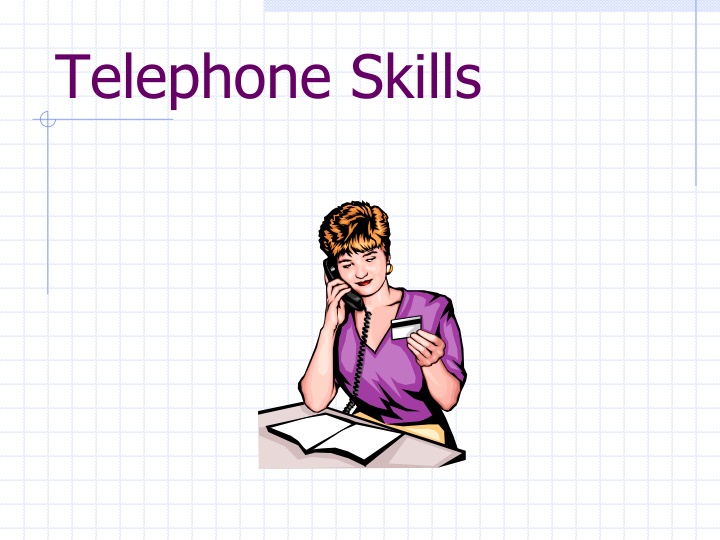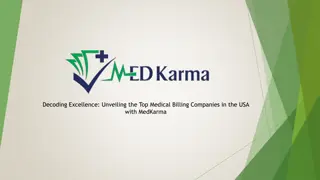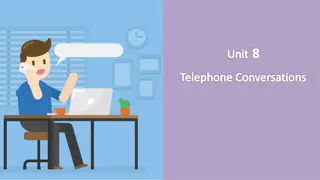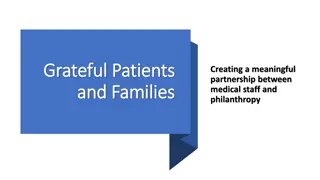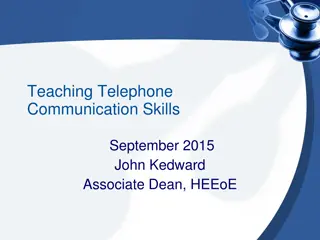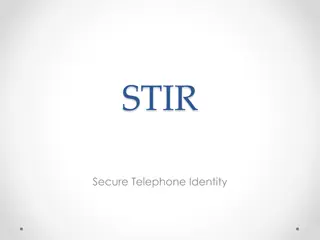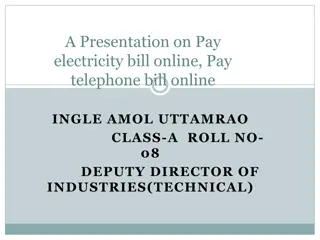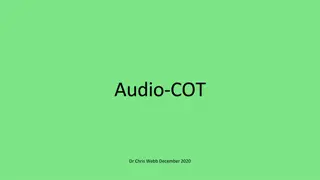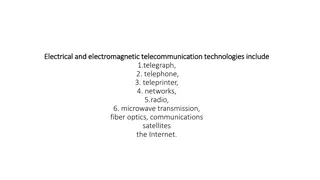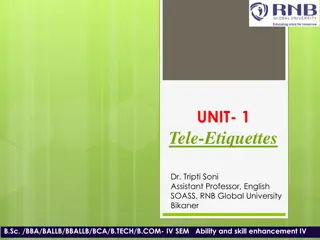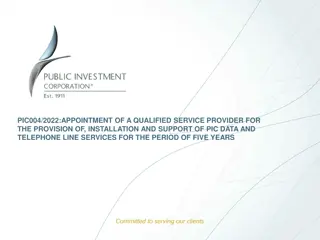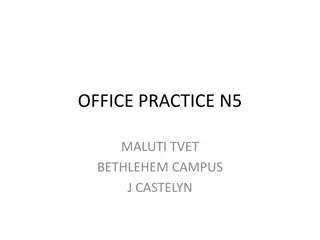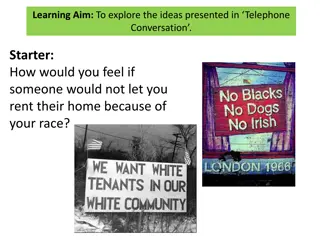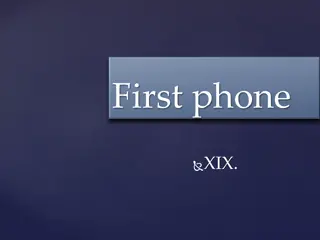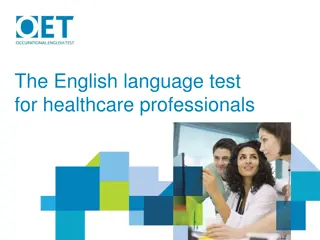Mastering Telephone Skills in Healthcare
Develop your telephone skills in healthcare by following guidelines for answering calls, identifying purposes, handling various types of calls, addressing clinical issues, and implementing effective telephone tips. Proper documentation of calls is essential for legal protection and may be a part of the client's medical record. Enhance communication by speaking clearly, being courteous, using the caller's name, and ensuring callers feel valued.
Uploaded on Aug 31, 2024 | 4 Views
Download Presentation

Please find below an Image/Link to download the presentation.
The content on the website is provided AS IS for your information and personal use only. It may not be sold, licensed, or shared on other websites without obtaining consent from the author.If you encounter any issues during the download, it is possible that the publisher has removed the file from their server.
You are allowed to download the files provided on this website for personal or commercial use, subject to the condition that they are used lawfully. All files are the property of their respective owners.
The content on the website is provided AS IS for your information and personal use only. It may not be sold, licensed, or shared on other websites without obtaining consent from the author.
E N D
Presentation Transcript
Answering the phone Follow guidelines presented in the policy and procedure manual for the health care facility Usually name and office name Answer promptly, be courteous, calm, pleasant, and give the caller full attention Caller should feel that their call is important
Answering the phone Identify the purpose of the call Emergency calls require immediate attention
Types of calls Administrative calls Appointments Questions concerning office hours, policies, and fees Referral requests Billing/insurance questions Lab/test results Hospital reports/updates Sales Complaints
Clinical Issues Calls from other health care providers, referrals Client requests to discuss tests results Prescription renewal requests Clients seeking advise
Effective telephone tips Speak directly into the mouthpiece so listener can hear easily Use a normal tone of voice and speak at a natural pace Annunciating words
Effective telephone tips Be courteous Use please and thank you Be clear and concise using short, simple, descriptive words Avoid the use of slang and in- house terms or abbreviations (use language the caller understands)
Effective telephone tips Use the caller s name during the conversation Ask questions to check for understanding Let caller hang up first
Messages Proper documentation is required for legal protection Records of telephone calls may also be included in client s file as a component of the medical record
Messages Incoming calls Date and time of call Caller s name and phone number Repeat for verification Name of person message is for Action to be taken (Please call, will call back)
Messages Record the message accurately Name or initials of person taking the call Maintain confidentiality Do not repeat confidential information over the phone in the presence of other clients
Messages Outgoing calls Plan the call Have all necessary information available Confirm the correct number before making the call Allow sufficient time for someone to answer the phone (Especially when calling the elderly, disabled, or post-surgical patient) State your name and reason for calling
